Predictive SEO: Example Strategies, Analytics and Results
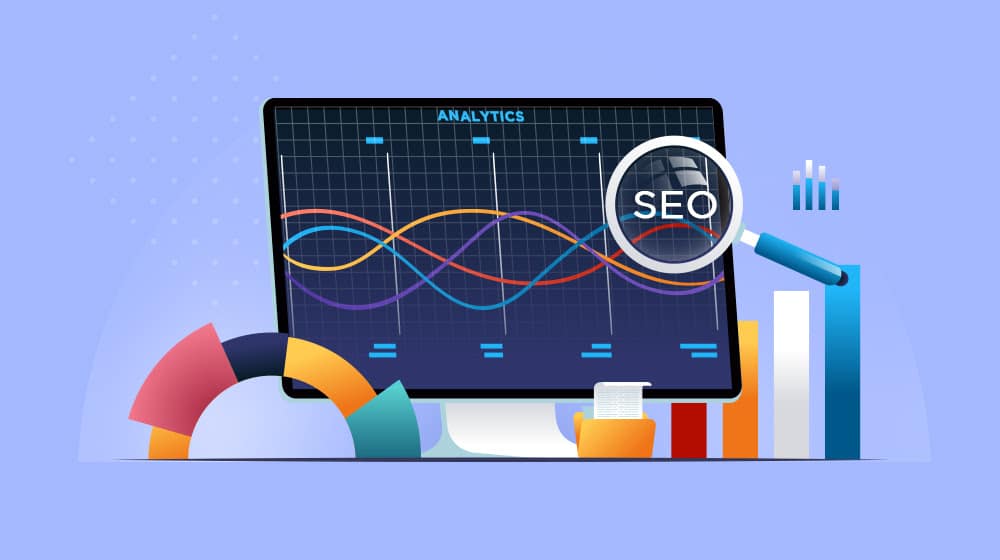
What would you do if you could see the future?
I'd probably win the lottery and retire myself.
In the absence of future sight capable of seeing next week's Powerball numbers, though, there are a lot of other things you could do with a bit of insight into the near future.
Today's topic is predictive analytics and predictive SEO. It's an emerging technology powered largely by machine learning (the actual AI, not the LLM-style AI people call AI now), and it's making waves in SEO and content marketing.
What is Predictive Analytics?
Predictive analytics is the science of using a lot of data and some very complex math to predict the future.
If you throw a ball up in the air, you can use math to calculate where it's going to land. Simple math will get you in the right ballpark just by knowing the angle and velocity of the ball. You won't be 100% accurate, though; you need to account for things like air resistance and wind, which adds more complexity to the equation.
For a business, "consumer interest" is the ball, and the sum of information, culture, and trends is the wind. But the reward for predicting where the ball will land can be so, so much higher than just being able to catch it.
Imagine if you could predict a coming trend and be one of the first people with content available for it.
Imagine if you could guess when a new interest is going to surge and be the biggest name in products associated with it.
That's the kind of power that predictive analytics can give you.
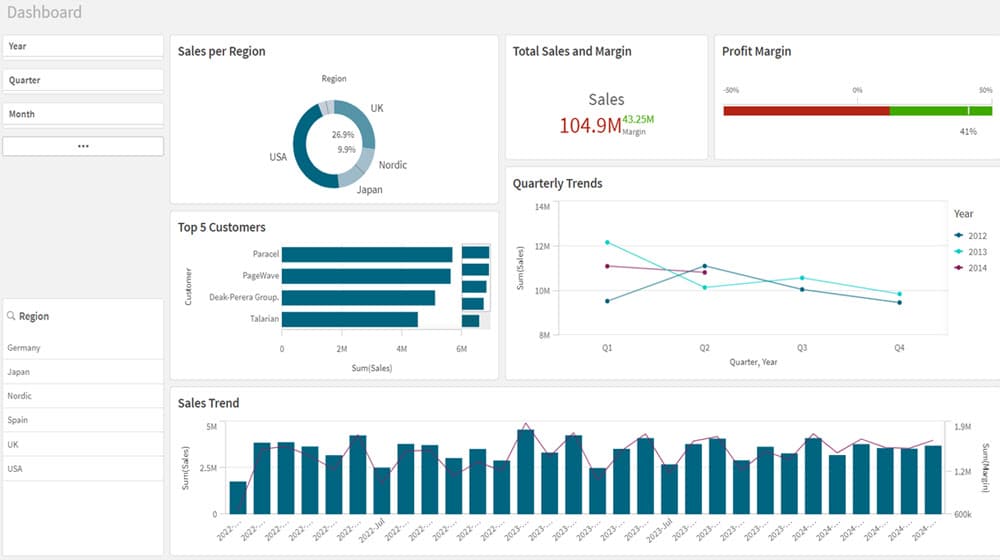
Predictive analytics can do things like:
- Predict a surging trend in your niche.
- Anticipate upcoming changes to Google's search algorithms.
- Proactively understand your customer's needs before they know they have the need.
This allows you to capture interest as soon as that interest materializes. You could know where the next gold rush would be and be ready to sell shovels before the first prospectors arrived.
Whether it's overall market trends, niche-focused interests, or business-specific insights, predictive analytics empowers you to plan for the future rather than react to the present.
How Does Predictive Analytics in SEO Work?
I've made some bold promises here, including one you should probably be skeptical of. Can a machine learning model predict market trends or search algorithm updates?
Well, yes and no.
Predictive models are guesswork. They're very educated guesswork based on a ton of data, drawing connections and conclusions that human analysis wouldn't be able to do. It can be startlingly accurate, but it's not perfect.
I've seen people claim that predictive analytics can predict Google's algorithm updates, but I don't think that's true the way people think it is. You can predict that Google is going to make an update on or around a certain date – since they have a history of releasing updates on certain dates – but the exact effects it has are unlikely to be predicted.
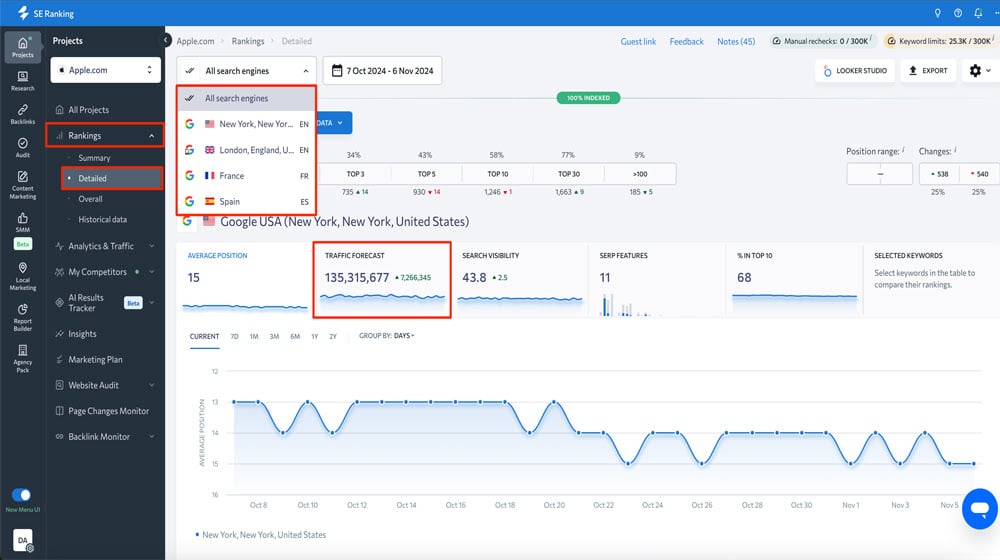
Image source: seranking.com
Predictive analytics is very powerful. The more useful data you can feed it, and the more refined you can make the statistical models, the more powerful the predictions can be.
At the same time, the world isn't a rational place. All sorts of unexpected things can happen and can impact the future in the short term and the long term. We live in especially chaotic times with our current government, as well, and that makes predictions based on past data less reliable.
The good news is that predictive analytics focused on SEO can be fairly effective because truly earth-shattering shake-ups are fairly rare.
What Data Goes Into Predictive SEO?
Predictive SEO needs a lot of data to work right, but you can't just have it scrape the internet and hope it works. You need focused, granular, and useful data sets.
- Website performance metrics.
- Content measurement and data.
- User behavior and tracking, including demographics.
- SEO metrics for your site in particular.
- Keyword rankings.
- Site traffic.
- Bounce rates.
- Conversion rates.
- User engagement rates.
You also need more than just a snapshot of this information. You can't draw a line with just one point; you need at least two, and the more you have, the more accurately you can draw the specific curve.
That means you need all of this data over time. Unfortunately, this means predictive analytics will have a hard time giving you information if your site is brand new or too small to get much traffic. You can't run a predictive analytics model and ask it if a hypothetical site you're considering making will work; all the data the model has says your site doesn't exist.
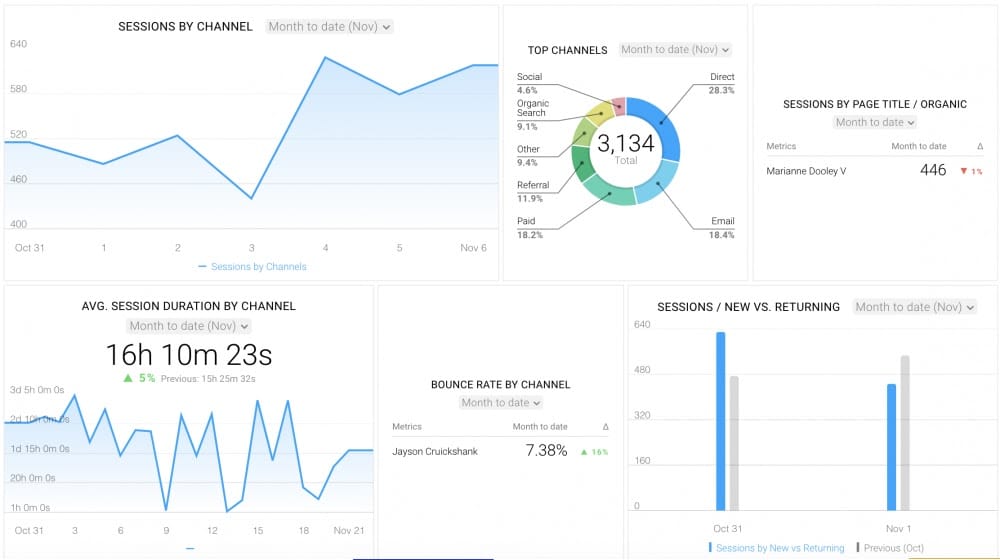
Image source: https://cdnwebsite.databox.com/wp-content/uploads/2019/11/22045535/Screenshot-2019-11-22-at-09.55.23-1000x559.png
Predictive analytics also requires a statistical analysis model. Fortunately, you don't need to become a data scientist to make one yourself; there are a bunch of models already made, and often, these have been converted into usable tools as well.
Again, I want to stress here: this is not LLMs. LLMs are also machine learning, but you can't just go to ask ChatGPT what the future holds. It's a different kind of model made for a different purpose.
Big Data companies can take a lot more information and apply their own methods to train unique, proprietary models for their own predictions. Technically speaking, you can do that too, but that's where "become a data scientist" comes in and is somewhat outside the scope of the average marketer's workflow.
How You Could Use Predictive SEO
Predictive SEO allows you to get a somewhat accurate idea of what the near-term future is likely to hold. You can then use that prediction to plan your upcoming content so you're poised to take advantage of that future.
It's important to recognize the limitations here, though. You aren't going to run a piece of software and have it generate a bunch of keywords that are likely to be valuable in the future.
More likely, you're going to get predictions like "interest in X is on the rise."
A primary example of this is Glimpse. Glimpse is like Google Trends but with predictive analytics attached. You run it against a niche, and it gives you current, ongoing, and upcoming trend information. Some of it is surprisingly accurate, while other parts of it are a little less so.
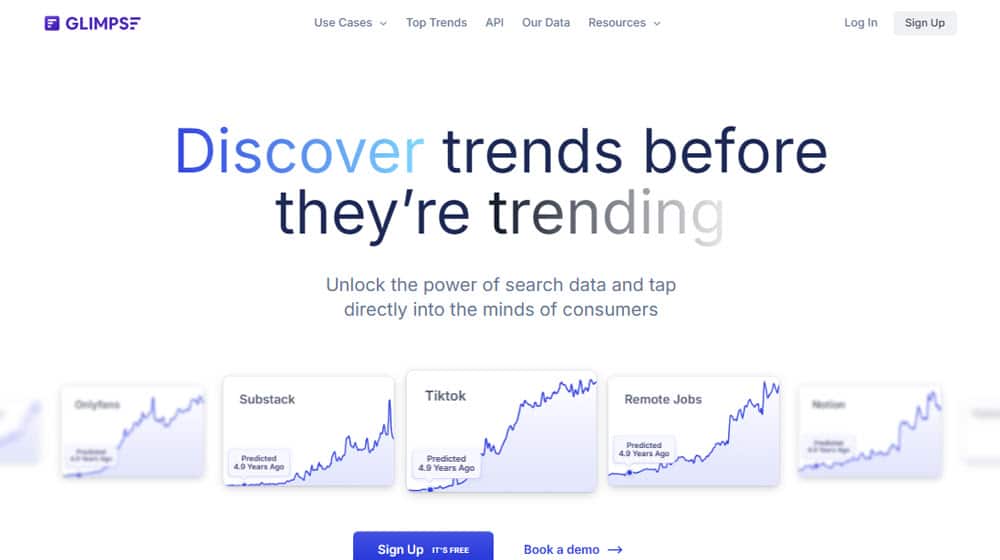
Sometimes, it's really not impressive. It doesn't take a machine-learning algorithm to tell you that recipes for Christmas cookies are going to be more popular in November and December than in April, right? But, it can tell you that maybe certain egg substitutes are going to be more relevant coming up.
As a marketer, predictive analytics gives you some advantages if you use it correctly.
It helps you monitor trends and predict upcoming trends before other people notice them. A lot of marketers use trend monitors like Google Trends to look for upcoming opportunities. But, there's always a delay; you see something trending, you start your content production process, and you publish, but by then, the trend could be on its way out.
With predictive analytics, you can notice those trends earlier – sometimes years earlier, though don't count on it – and be poised to publish near the peak instead.
There are limitations to this. You can't predict a trend that comes out of nowhere, for example; if a company comes up with a new product that changes the entire industry and blindsides everyone, well, no one would have predicted it. You also have to be wary of predicting a trend too early; there's no real difference between a years-early trend and no trend at all.
- It helps you see what your competition is doing. Using predictive analytics on your competitors can give you some insight into the range of topics they're covering, how they're doing it, and how it's working out for them. With the right data, you might even be able to replicate the sort of topic research they did and start to cut them off.
- It helps you predict customer interest and needs. A huge part of being successful in marketing is identifying your audience, figuring out what that audience needs, and providing it to them. Sometimes, predictive analytics can give you insight into that audience, and you might be able to guess their needs before those needs arise.
- It helps you optimize your marketing efforts and budget. Everything you can do to more tightly focus your efforts where they can be most effective will help you put your money where it does the most work.
To actually make use of predictive analytics:
- Find predictive analytics tools you can trust (see below) and get information out of them.
- Make use of that information, preferably to create content as rapidly as possible to be on top of the prediction.
- Monitor the success rate of the prediction. If they fail as often as they succeed – or they fail more often than they succeed – ditch the tool and start over.
- If they succeed, keep at it and make as much use of the platforms as possible.
Good use of predictive SEO can give you a serious edge in a competitive niche, so it's definitely worth trying if you can.
Exploring Predictive SEO Tools
This is where things get a little tricky, and I could use your help.
There are a ton of marketing tools out there that claim they use machine learning or AI for predictive analytics.
Some of them are just lying. Some of them do use machine learning, but it's either very basic, old versions of free algorithms, or it's data pulled from other sites and white-labeled for their own use. Some of them have more useful algorithms, and a scant few of them do unique research and development.
You also have to avoid anything based on an LLM. Something like ChatGPT/Bard/BingAI/etc. can output a convincing report, but it doesn't actually have data or make predictions; it just outputs text in a format you request.
I already mentioned Glimpse, for example. They're on the legit side of the spectrum; they use trend information from Google, plus a wealth of external data sources, to develop fairly useful predictive analysis for potential future trends.
On the simple end is just the data provided through the Google Search Console's recommendations. Google has been experimenting with recommendations for a while now, and they've put a bit of predictive analytics behind them. They're decent, but the downside is that everyone has them, so they don't give you a unique edge.
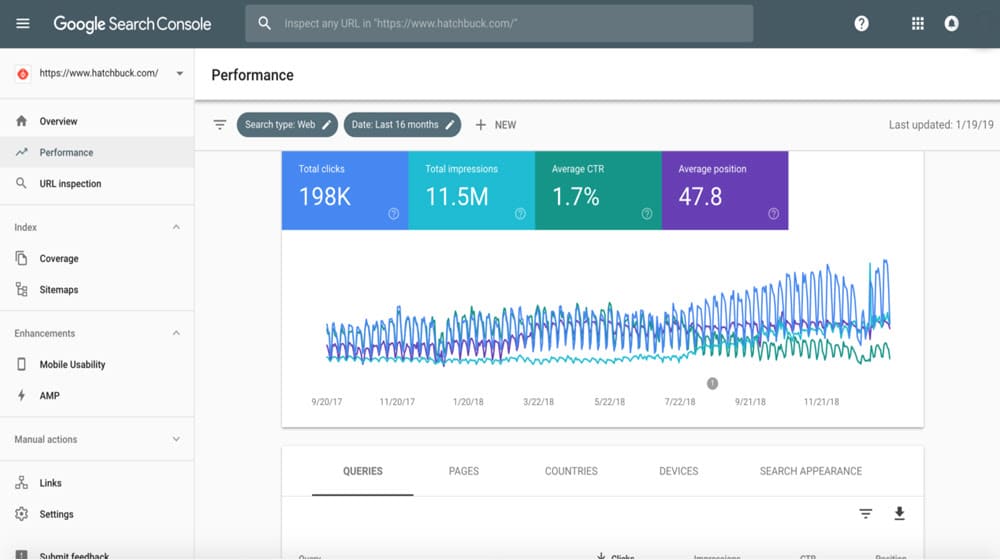
Image source: benchmarkone.com
Certainly, big platforms like Semrush and Ahrefs also have their own predictive analytics at play. A lot of their tools and estimations are powered by predictive analytics and statistical modeling. They're very good, but they also tend to be fairly expensive and somewhat tricky to use. You have to know which tools to use and what to look for when you use them to get value out of them.
There are also some interesting tools I've been looking at but haven't yet tried out, like Dataiku. This is where your help comes in: recommend your favorite predictive analytics tools in the comments below. I'd love to give more of them a look! Just make sure they're actually predictive and not just LLM output that sounds predictive but is as wrong as it is right.



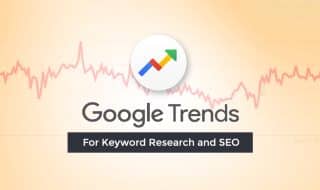
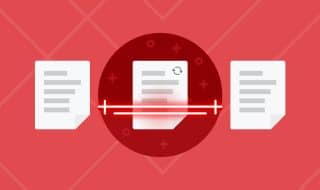
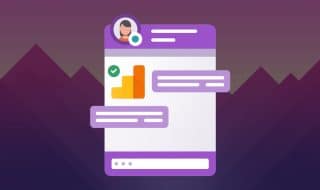

Comments